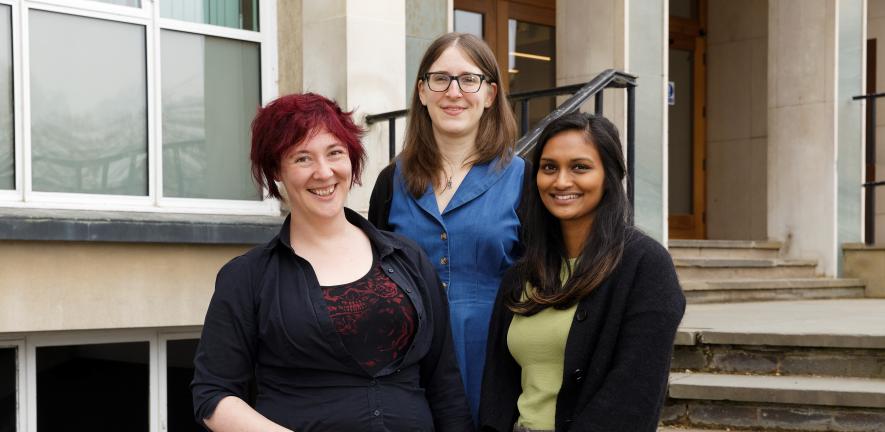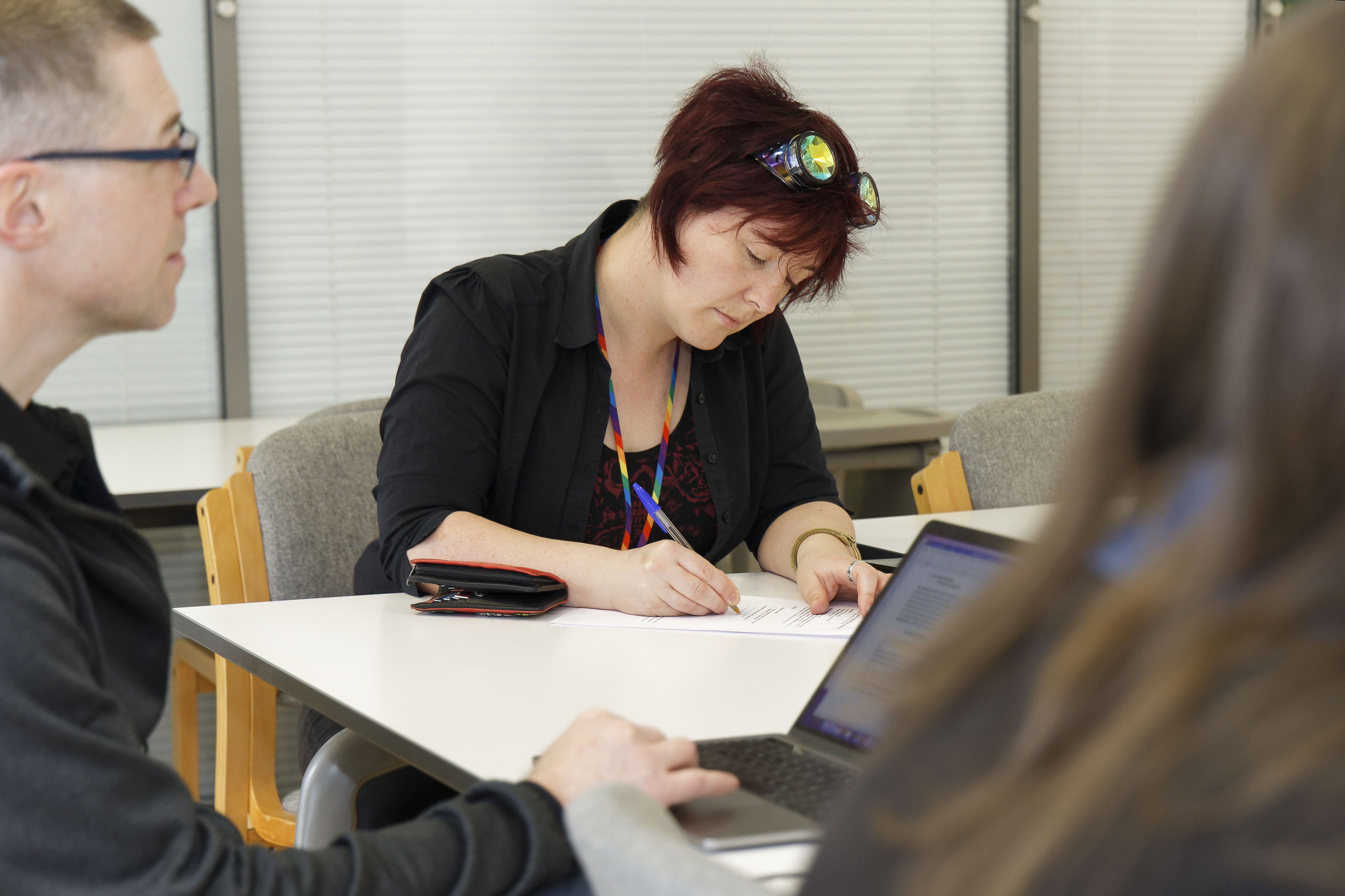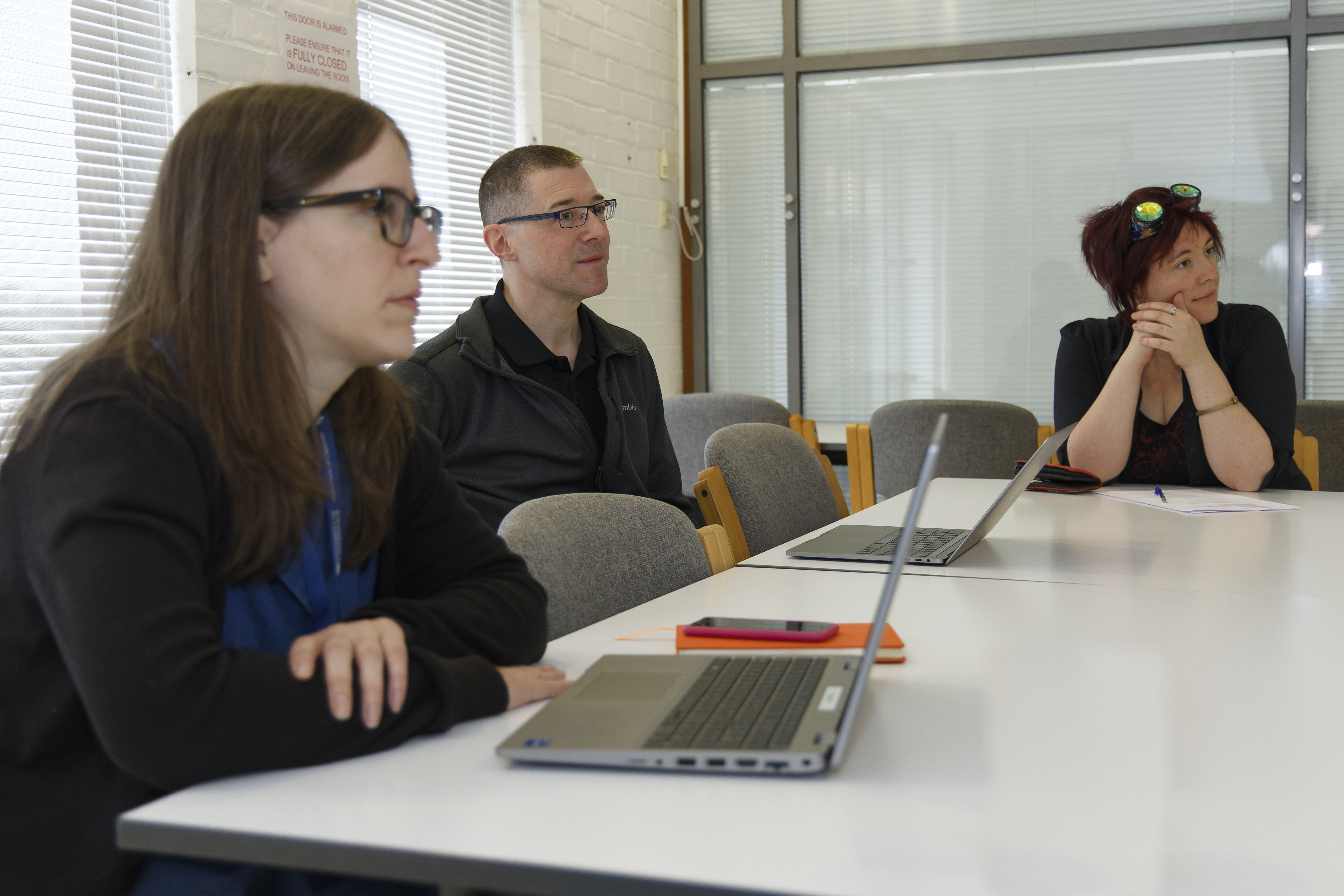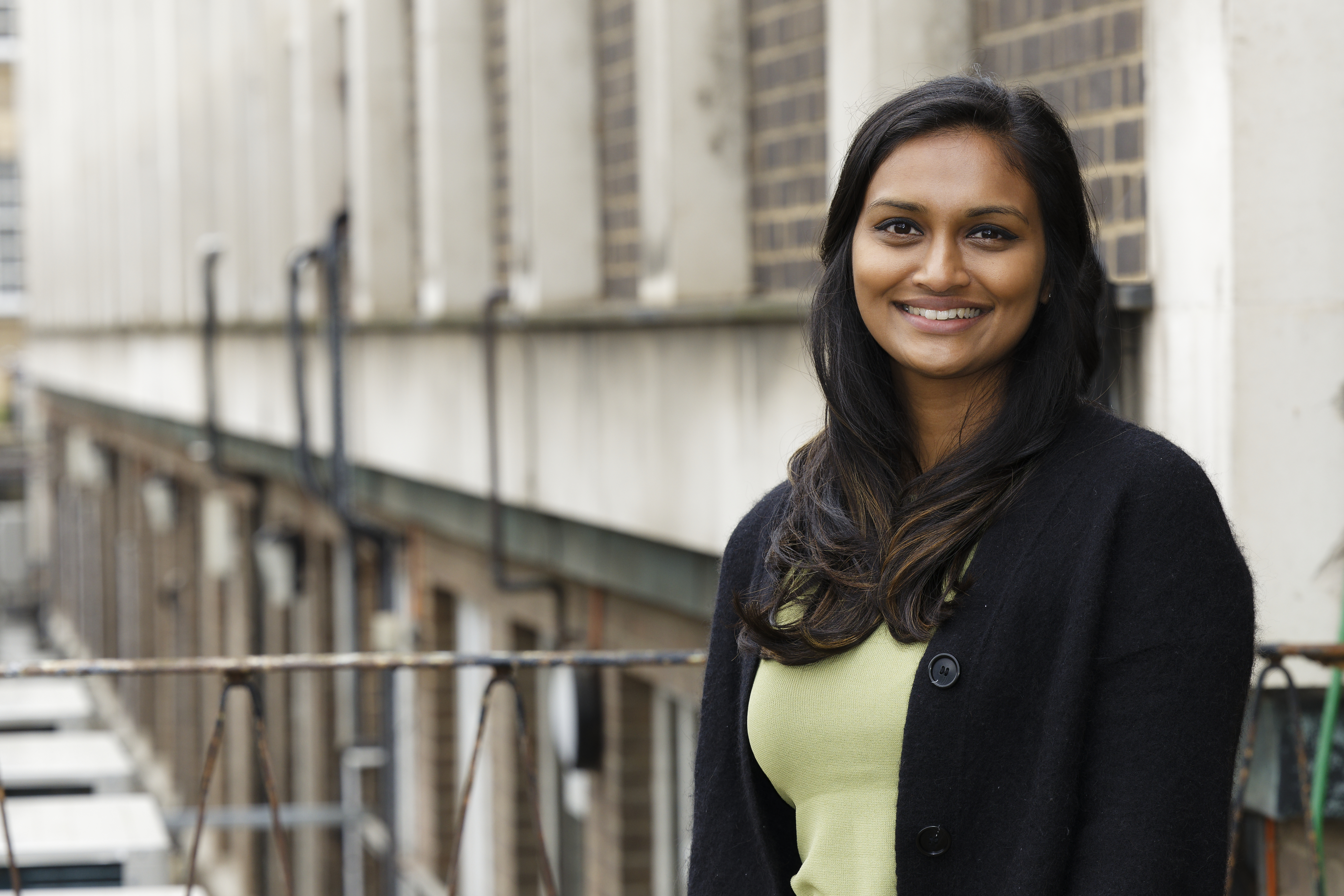
“After a lot of staff turnover in the last two years, we’re very much in the process of rebuilding,” says Dr Rosanna Hunt (known as Rosie), who joined the team in December as Postgraduate and Admissions administrator. “That means in practice I’m the one who organises the training courses, and the pizza and beer,” she laughs.
Postgraduate Student Coordinator Tessa Blackman, who started in August, is responsible for admissions and student records. Among many other responsibilities, she manages the often complex postgrad application process. Tessa says: “I see my role as supporting the chemistry postgraduate students and ensuring they have a happy, productive degree and reach their potential.”
The team’s third member, Dr Aruna Reddy, has recently returned to the department and will be gradually increasing her hours as Postgraduate Admissions and Education Manager. Aruna is the first contact for all information regarding departmental policy, postgraduate education and training. “But we all work very closely together,” she explains, “and any one of us can be approached with questions or issues.” The team also provides pastoral support and can help students understand and access the resources offered by the department, the university and its colleges.
Community building

Dr Rosanna Hunt in a postgraduate education team meeting, Michael Webb ©University of Cambridge.
The team have a number of goals for the coming year. “We want to ensure that our regular peer-to-peer programmes and courses run without delay or crisis. But we also want to rebuild the social activities that were lost over the pandemic,” explains Rosie. “Community building is so important because that’s how students develop lifelong friendships, boost their confidence and create meaningful business connections,” she says.
The team have also revived the popular Outstanding Supervisor Competition, in which students review and nominate their supervisors. “It’s about recognising excellence in supervisors and encouraging it throughout the department,” explains Rosie.
Seeing the Outstanding Supervisor reviews also helps the team gain insight into students’ needs. Rosie says: “What is most striking is the way students often value how supportive a supervisor is more than that person’s academic expertise. They are also very grateful for staff who positively respond to and support difference. Basically the people who are nominated are making the department a better place to learn.”
Representing postgrads’ views

Postgraduate education team meeting, Michael Webb ©University of Cambridge.
The team members report to the Postgraduate Education Committee (PEC), which is chaired by Director of Postgraduate Education Professor David Spring. They are also advised and supported by Head of Postgraduate Education Dr Deborah Longbottom.The PEC acts as a forum for discussion and decision-making about the welfare and support of postgrads in the department, in addition to the development and implementation of postgrad courses. It normally has two postgrad student reps who bring along the concerns, issues and suggestions of other postgrad students, and there will be opportunities to volunteer later in the year.
Rosie says: “To make improvements and meaningful change we need to know what students actually want. We want to create a positive and inclusive environment, but if we don’t know where we’re going wrong, we can’t fix it.”
Getting to know each other

Dr Aruna Reddy outside the department, Michael Webb ©University of Cambridge.
The team feel the decrease in participation could be due to the lack of social interactions since COVID, which is something they are working hard to ameliorate. “We want to rebuild that feeling of being a cohort,” explains Aruna. “Tessa and Rosie have a lot of new ideas, and we are looking forward to having a new team dynamic to build on these.”
“We are trying to get the Postgrad Social and Network committee up and running again, and to get postgrads talking to each other and getting to know each other socially – not just in their own groups, but across the department,” says Rosie. Previous postgrad committees have organised picnics, sports days and formal halls in college. “We are always happy to provide food and venues for events, which is where the pizza and beer comes in,” says Rosie.
The team hope that increased social interactions will help expand postgraduate involvement throughout the department. “I want all the students to be involved, to give more feedback, to participate – I don’t want this to be a top-down role,” says Rosie. “We’d also like Queer in Chemistry to be involved. We want to make sure that issues are getting discussed and that there is an examination of the cultures that have risen in some groups and not others, and how they can benefit each other.”
Rosie came to her role with a keen EDI and accessibility focus, and she particularly would like to be confident that students with Student Support Documents (SSDs) are being properly supported by the department and the disability resource centre. “I’d like to make sure that students who may have felt challenged or disenfranchised because they had different needs are being properly supported and getting the same out of their education for the same amount of effort as everyone else – in other words, parity,” she says.
Watch this space
Where would the team like to be in a year? “We would love to have had some successful peer-to-peer and showcase meetings, where students made friends across research groups, learned about each other’s research and gained confidence in their own work, getting to know staff they may not have met,” says Rosie.
“We want to really build a community. We want students to not only feel that their voices are being heard, but to make sure they thrive.”
This article first appeared in Chem@Cam Issue 66. You can find the magazine online here.

